What is Huntington’s disease?
Huntington’s disease is an inherited condition where brain cells gradually lose their ability to work and eventually die. It mainly affects parts of the brain that control voluntary movements and memory.
There are two main types of Huntington’s disease:
- Adult onset: This is the most common form, with symptoms usually starting after age 30.
- Early onset (juvenile Huntington’s disease): This form is very rare and affects children or teenagers.
The disease happens because of a change in a gene passed down from parent to child. If one parent has this gene, each child has a 50% chance of inheriting the disease. Symptoms usually begin in middle adulthood but can appear earlier or later.
Early signs may include small changes in coordination, mood swings or difficulty concentrating. As the disease progresses, people may experience uncontrollable movements, trouble speaking or swallowing, and problems with memory and thinking.
While there is no cure for Huntington’s disease yet, treatments are available to help manage symptoms and improve quality of life.
How common is Huntington’s disease?
Huntington’s disease is rare. It affects about 4 to 7 people per 100,000 worldwide. It is most common in people of European or Caucasian descent, with slightly higher rates in Europe and North America.
The disease is less common in Asia. Since Huntington’s is inherited, it’s more likely to occur in families where someone already has the condition. Each child of a parent with Huntington’s has a 50% chance of inheriting the gene.
Huntington’s disease symptoms
Huntington’s disease causes a variety of symptoms that affect movement, thinking and mental health. These symptoms develop gradually and get worse over time. Knowing what to look for can help with early diagnosis and better management of the disease.
Movement disorders
Huntington’s disease can cause involuntary movements—meaning movements you can’t control—and make it harder to move on purpose. One of the most common movement symptoms is chorea, which causes jerky, twisting motions in the arms, legs, face and tongue.
Over time, people with Huntington’s disease may also struggle with voluntary movements like walking, speaking or holding things steady. These changes can make everyday tasks more difficult and affect independence.
Other common movement symptoms include:
- Muscle stiffness or tightness
- Slow or unusual eye movements
- Trouble walking, staying balanced or keeping good posture
- Difficulty speaking or swallowing
Loss of voluntary movement can have a bigger impact than the involuntary ones. It can make it harder to work, take care of yourself or communicate clearly with others.
Mental health conditions
Changes in mood and emotions are common with Huntington’s disease. These symptoms aren’t just reactions to the diagnosis—they’re caused by changes in the brain. Emotional changes can happen early and often need treatment and support.
Common emotional symptoms include:
- Feeling sad, irritable or uninterested in things you used to enjoy
- Pulling away from friends or family
- Trouble sleeping or changes in sleep patterns
- Feeling tired or low on energy
- Thoughts of death or suicide
Some people may also have obsessive thoughts or repeat the same behaviors. Others may go through mood swings or periods of very high energy and risky behavior. These changes can be treated with medication, counseling or both.
Cognitive conditions
Huntington’s disease can affect how a person thinks, solves problems and remembers things. These changes often start slowly but get worse over time. They can make daily tasks harder and affect work, relationships and everyday routines.
Common thinking-related symptoms include:
- Trouble staying focused or organized
- Getting stuck on a thought or task and finding it hard to switch gears
- Acting without thinking or saying things that feel out of character
- Not noticing changes in behavior or abilities
- Slower thinking or having trouble finding the right words
- Difficulty learning or remembering new information
These changes can feel frustrating, but understanding what’s happening can help you and your family get the right support.
Symptoms of juvenile Huntington’s disease
When Huntington’s disease affects children or teens, it usually progresses faster and looks different than in adults. Symptoms often start with changes in mood, school performance or movement.
Early signs in kids and teens may include:
- Trouble paying attention or staying on task
- A drop in school grades
- Acting out, mood swings or behavior changes
- Stiff muscles that make walking harder
- Small shaking movements (tremors)
- Frequent falls or clumsiness
- Seizures
When to see a doctor
See your doctor if you are concerned that you or a loved one has symptoms of Huntington’s disease. Huntington’s disease can take a long time to diagnose, so the sooner you seek help for your symptoms, the sooner you can find answers.
You should also see your doctor if one of your parents has Huntington’s disease, as that significantly raises your risk. Your doctor can discuss the pros and cons of genetic testing and connect you to a genetic counselor if you decide to proceed.
What causes Huntington’s disease?
Huntington’s disease is caused by a change, or mutation, in a specific gene called the HTT gene. This gene normally makes a protein called huntingtin, which plays a role in brain cell function. In people with Huntington’s disease, the HTT gene has a repeated section of DNA that’s longer than normal. This leads to the production of a harmful version of the huntingtin protein.
Over time, the faulty protein builds up in certain areas of the brain, especially those that control movement, thinking and emotions. As the disease progresses, it causes brain cells to stop working properly and eventually die. This is what leads to the symptoms of Huntington’s disease.
Is Huntington’s disease inherited?
Yes, Huntington’s disease is inherited. It’s passed from parent to child through a change in a single gene. If one parent has the gene, each child has a 50% chance of inheriting it. People who inherit the gene will develop the disease at some point in life, usually in adulthood. The gene mutation doesn’t skip generations.
If Huntington’s runs in your family, a genetic counselor can help you understand your risk and decide if genetic testing is right for you. Testing can give you important information for your health and future planning.
Complications
Huntington’s disease affects your physical, mental and emotional health. In later stages, most people can no longer work or manage daily tasks on their own and need full-time care.
The disease can also lead to serious health problems, some of which can be life-threatening.
Common complications include:
- Heart disease
- Fractures and injuries
- Mental health issues
- Substance misuse
- Swallowing problems
How is Huntington's disease diagnosed?
If you or a loved one shows signs of Huntington’s disease, getting a diagnosis is the first step toward planning care and managing symptoms. Diagnosing the condition involves a combination of medical history, physical and neurological exams, brain imaging and genetic testing. Early symptoms can sometimes be mistaken for other conditions, so a thorough evaluation is important.
Medical history and exams
Diagnosing Huntington’s disease often starts with a detailed conversation about your personal and family history. Your doctor will ask if you’ve had any changes in movement, mood or thinking, and whether anyone in your family has been diagnosed with Huntington’s disease or had similar symptoms. Since Huntington’s is inherited, a family history can be an important clue.
After reviewing your history, your doctor will perform several types of exams to better understand how the disease may be affecting you. These include:
- Physical exam: This checks your overall health and looks for any signs of weight loss, muscle weakness or other physical issues that could be related to Huntington’s. Your doctor may also evaluate how well you move, how steady your gait is and whether you have any involuntary movements like twitching or jerking.
- Neurological exam: This focuses on how well your brain and nerves are working. Your doctor may:
- Test your coordination, balance and reflexes
- Check your muscle tone and strength
- Observe your eye movements and facial expressions
- Look for signs of chorea (uncontrolled movements) or rigidity
- Mental and behavioral health screening: Because Huntington’s disease affects more than just physical movement, your doctor will also check for changes in mood, behavior and thinking. They may:
- Ask about depression, anxiety or irritability
- Evaluate your memory, problem-solving skills and ability to focus
- Talk to close family members to understand any changes in your behavior or emotional well-being
These evaluations help your care team determine whether your symptoms are likely caused by Huntington’s disease or another condition. In some cases, additional testing is needed to confirm the diagnosis.
Imaging tests
Doctors may order brain imaging tests to look for changes that suggest Huntington’s disease. While these tests can’t confirm the disease on their own, they help rule out other conditions and show how the brain is changing over time.
- Computerized tomography (CT) scan: Uses X-rays to create detailed pictures of your brain. It can show brain shrinkage or other physical changes.
- Magnetic resonance imaging (MRI) scan: Uses magnets and radio waves to make clear images of the brain. An MRI can detect early damage in the areas affected by Huntington’s disease and track progression.
Genetic testing
Genetic testing is the only way to confirm Huntington’s disease. It checks for a specific change in the HTT gene, which causes the disease. This is done using a simple blood test.
If you already have symptoms, a positive test confirms the diagnosis. If you don’t have symptoms but have a family history, you can choose predictive testing to learn whether you carry the gene. This can help with life planning, family decisions and emotional preparation. However, choosing to get tested is a personal decision, and many people find it helpful to talk with a genetic counselor first.
Genetic counseling gives you support before and after testing. A counselor can help you:
- Understand what your results mean
- Think through the emotional impact of knowing your risk
- Talk with family members about the results
- Explore options for future planning and care
Prenatal testing
If one or both parents carry the gene for Huntington’s disease, prenatal testing may be an option. This type of testing can tell whether a fetus has inherited the gene mutation that causes Huntington’s.
There are two main types of prenatal testing:
- Chorionic villus sampling (CVS): Done around 10 to 12 weeks of pregnancy. A small sample is taken from the placenta to test for the gene.
- Amniocentesis: Done around 15 to 20 weeks of pregnancy. A small amount of fluid is taken from around the baby to test for the gene.
Some parents may also consider preimplantation genetic testing (PGT) during in vitro fertilization (IVF). This allows embryos without the Huntington’s gene to be selected before pregnancy.
Prenatal testing is a personal decision. A genetic counselor can help you and your partner explore all options, understand the testing process, and think through what results might mean for your family.
Huntington’s disease treatments
There is no cure for Huntington’s disease, but there are many ways to help manage symptoms and support your well-being. Because Huntington’s affects each person differently and changes over time, your healthcare team will work with you to create a treatment plan tailored to your needs. Treatment often includes therapy, medication, counseling and special care to keep you comfortable and safe.
Researchers are studying new ways to treat Huntington’s disease. You or your loved one might qualify for a clinical trial, so ask your doctor about open trials if you’re interested in new or experimental treatments.
Medication
Medicines can help control symptoms related to movement, mood and behavior. Because some medicines can cause side effects, your doctor will prescribe them carefully and adjust treatment as needed.
Common medications include:
- Antidepressants: These help treat depression and anxiety, which many people with Huntington’s disease experience.
- Antipsychotic drugs: These medications can reduce involuntary movements (called chorea) and help with symptoms like hallucinations, delusions or mood swings.
- Tetrabenazine, valbenazine and deutetrabenazine: These drugs specifically treat chorea, the jerking movements caused by Huntington’s. They may increase the risk of depression or thoughts about suicide, so it’s important to talk openly with your doctor about how you’re feeling.
Your doctor may also prescribe other medications to help with irritability, sleep problems or muscle stiffness based on your symptoms.
Therapy
Therapy can help you stay active, improve your skills and maintain independence as long as possible.
- Physical therapy: A physical therapist will teach you exercises to improve your balance, strength and coordination. This helps lower your risk of falling and injury. Staying active also supports your heart health and overall fitness. Your therapist can also suggest ways to move safely and recommend equipment like canes, walkers or braces to make movement easier and safer.
- Speech therapy: Huntington’s disease can weaken the muscles you use for talking and swallowing. A speech therapist will help you improve your speech clarity and teach techniques to swallow safely. This lowers the risk of choking and lung infections from accidentally breathing in food or drinks. They can also suggest communication tools if speaking becomes difficult.
- Occupational therapy: An occupational therapist helps you manage everyday tasks like dressing, eating, grooming and household chores. They can recommend special tools, like utensils with easy grips, or suggest changes in your home to make daily life safer and easier. They’ll work with you to find ways to keep your independence longer.
Counseling
Huntington’s disease affects more than just the body—it can take an emotional toll on you and your family. Counseling provides support to help you cope with the challenges.
- You can work one-on-one with a counselor to manage feelings like sadness, anger or anxiety.
- Family counseling can support everyone affected by the disease and help improve communication and understanding.
- Support groups, either in person or online, connect you with others who understand what you’re going through. Sharing experiences can reduce feelings of isolation and provide practical advice.
Talking with a mental health professional can improve your overall well-being and help you face the disease with strength.
Palliative care
Palliative care is specialized care that focuses on comfort, symptom management and quality of life. It is helpful at any stage of Huntington’s disease, not just near the end of life.
- Palliative care teams help manage symptoms like pain, muscle stiffness, trouble breathing, swallowing difficulties and fatigue.
- They provide emotional and spiritual support for you and your loved ones, helping with anxiety, depression and other feelings that arise.
- These teams coordinate with your doctors, therapists and caregivers to ensure your care is consistent and meets your needs.
- Palliative care also includes advance care planning, helping you and your family make important decisions about future treatments and care preferences.
Starting palliative care early can improve comfort, help manage symptoms better and support both you and your family along the journey.
Find care for Huntington’s disease
At Baylor Scott & White, we have multiple locations across North and Central Texas to provide you with access to expert care. Our neurology specialized centers are designed to meet the unique needs of people who have been diagnosed with Huntington’s disease. Whether you're seeking diagnostic testing, treatment options or ongoing support, our teams are here to help you.

Baylor Scott & White Dallas Diagnostic Association - Garland (Satellite)
5220 W University Dr POB II, Ste 250, McKinney, TX, 75071
- Monday: 8:00 am - 5:00 pm
- Tuesday: 8:00 am - 5:00 pm
- Wednesday: 8:00 am - 5:00 pm
- Thursday: 8:00 am - 5:00 pm
- Friday: 8:00 am - 5:00 pm
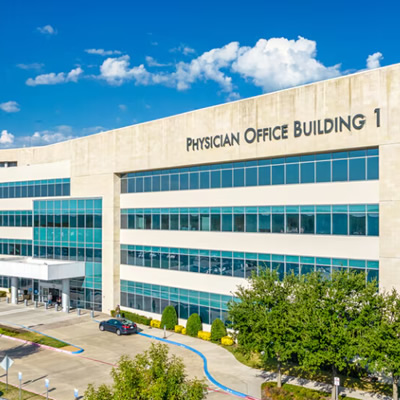
Baylor Scott & White Neurology - McKinney
5236 W University Dr Ste 3700, McKinney, TX, 75071
- Monday: 8:00 am - 4:30 pm
- Tuesday: 8:00 am - 4:30 pm
- Wednesday: 8:00 am - 4:30 pm
- Thursday: 8:00 am - 4:30 pm
- Friday: 8:00 am - 4:30 pm

Baylor Scott & White Medical Center - McKinney
5252 W University Dr Highway 380 at Lake Forest Drive, McKinney, TX, 75071
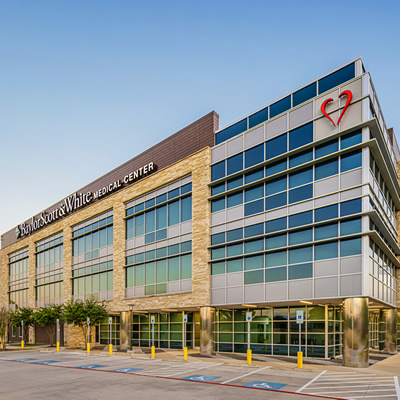
Baylor Scott & White Medical Center - Lake Pointe
6800 Scenic Dr , Rowlett, TX, 75088

Baylor Scott & White Neurology - Lake Pointe
7600 Lakeview Pkwy Ste 150, Rowlett, TX, 75088
- Monday: 8:00 am - 4:00 pm
- Tuesday: 8:00 am - 4:00 pm
- Wednesday: 8:00 am - 4:00 pm
- Thursday: 8:00 am - 4:00 pm
- Friday: 8:00 am - 4:00 pm
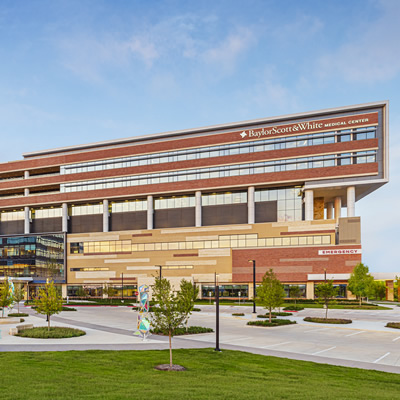
Baylor Scott & White Medical Center - Frisco at PGA Parkway
7600 Better Way , Frisco, TX, 75033

Baylor Scott & White Medical Center - Centennial
12505 Lebanon Rd , Frisco, TX, 75035
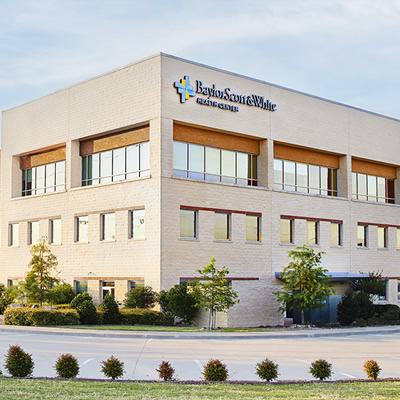
Baylor Scott & White Dallas Diagnostic Association - Garland
7217 Telecom Pkwy Ste 300, Garland, TX, 75044
- Monday: 8:00 am - 4:30 pm
- Tuesday: 8:00 am - 4:30 pm
- Wednesday: 8:00 am - 4:30 pm
- Thursday: 8:00 am - 4:30 pm
- Friday: 8:00 am - 4:30 pm
- Monday: 8:00 am - 4:15 pm
- Tuesday: 8:00 am - 4:15 pm
- Wednesday: 8:00 am - 4:15 pm
- Thursday: 8:00 am - 4:15 pm
- Friday: 8:00 am - 4:15 pm
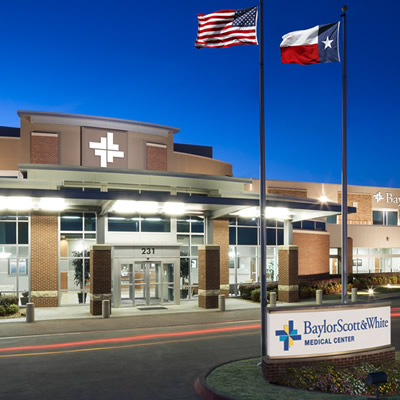
Baylor Scott & White Medical Center - Sunnyvale
231 S Collins Rd , Sunnyvale, TX, 75182

Baylor Scott & White - Plano Brain and Spine Center
4708 Alliance Blvd Pavilion I, Ste 810, Plano, TX, 75093

Baylor Scott & White Neurology - Plano
4708 Alliance Blvd Pavilion I, Ste 550, Plano, TX, 75093
- Monday: 8:00 am - 5:00 pm
- Tuesday: 8:00 am - 5:00 pm
- Wednesday: 8:00 am - 5:00 pm
- Thursday: 8:00 am - 5:00 pm
- Friday: 8:00 am - 4:30 pm

Baylor Scott & White Dallas Diagnostic Association - Plano
4716 Alliance Blvd Pavilion II, Plano, TX, 75093
- Monday: 7:00 am - 5:00 pm
- Tuesday: 7:00 am - 5:00 pm
- Wednesday: 7:00 am - 5:00 pm
- Thursday: 7:00 am - 5:00 pm
- Friday: 7:00 am - 5:00 pm
- Saturday: 8:00 am - 12:00 pm
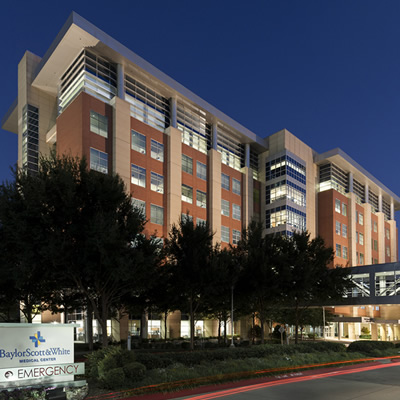
Baylor Scott & White Medical Center - Plano
4700 Alliance Blvd , Plano, TX, 75093

Baylor Scott & White Neurology Hospitalist Group - Plano
4700 Alliance Blvd , Plano, TX, 75093

The Headache Center at Baylor University Medical Center
9101 N Central Expy Ste 400, Dallas, TX, 75231

Baylor Scott & White Neuroscience Center
9101 N Central Expy Ste 400, Dallas, TX, 75231

Baylor Scott & White Headache Medicine Specialists of North Texas - Dallas
9101 N Central Expy Ste 400, Dallas, TX, 75231
- Monday: 8:00 am - 4:30 pm
- Tuesday: 8:00 am - 4:30 pm
- Wednesday: 8:00 am - 4:30 pm
- Thursday: 8:00 am - 4:30 pm
- Friday: 8:00 am - 4:30 pm

Baylor Scott & White Cognitive and Behavioral Neurology Associates
9101 N Central Expy Ste 230, Dallas, TX, 75231
- Monday: 8:00 am - 4:30 pm
- Tuesday: 8:00 am - 4:30 pm
- Wednesday: 8:00 am - 4:30 pm
- Thursday: 8:00 am - 4:30 pm
- Friday: 8:00 am - 4:30 pm

Baylor University Medical Center, part of Baylor Scott & White Health
3500 Gaston Ave , Dallas, TX, 75246

Baylor Scott & White Neurology - Dallas
3434 Swiss Ave Ste 400, Dallas, TX, 75204
- Monday: 7:30 am - 4:30 pm
- Tuesday: 7:30 am - 4:30 pm
- Wednesday: 7:30 am - 4:30 pm
- Thursday: 7:30 am - 4:30 pm
- Friday: 7:30 am - 4:30 pm

Baylor Scott & White Medical Center - Irving
1901 N MacArthur Blvd , Irving, TX, 75061

Baylor Scott & White Neurology - Irving
2021 N MacArthur Blvd Ste 210, Irving, TX, 75061
- Monday: 8:00 am - 4:30 pm
- Tuesday: 8:00 am - 4:30 pm
- Wednesday: 8:00 am - 4:30 pm
- Thursday: 8:00 am - 4:30 pm
- Friday: 8:00 am - 1:00 pm

Baylor Scott & White Medical Center - Grapevine
1650 W College St , Grapevine, TX, 76051

Baylor Scott & White Medical Center - Waxahachie
2400 N Interstate 35E , Waxahachie, TX, 75165

Baylor Scott & White All Saints Medical Center - Fort Worth
1400 8th Ave , Fort Worth, TX, 76104
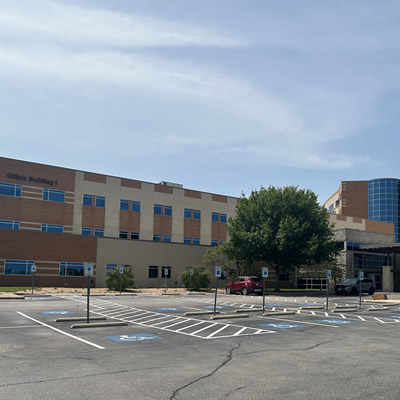
Baylor Scott & White Neurosciences Clinic - Waco
50 Hillcrest Medical Blvd Ste 201-A, Waco, TX, 76712
- Monday: 8:00 am - 5:00 pm
- Tuesday: 8:00 am - 5:00 pm
- Wednesday: 8:00 am - 5:00 pm
- Thursday: 8:00 am - 5:00 pm
- Friday: 8:00 am - 5:00 pm
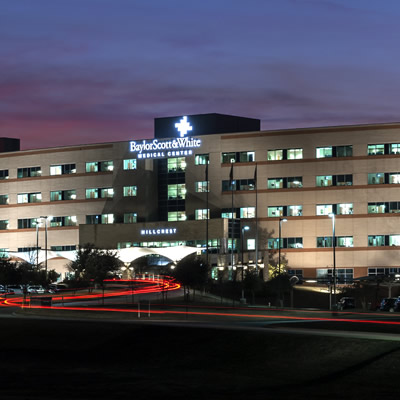
Baylor Scott & White Medical Center - Hillcrest
100 Hillcrest Medical Blvd , Waco, TX, 76712
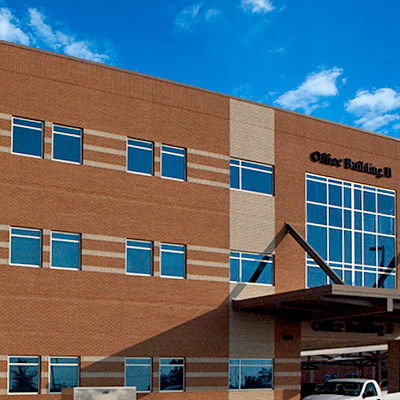
Baylor Scott & White McLane Children's Specialty Clinic - Waco Hillcrest
120 Hillcrest Medical Blvd Bldg II, Ste 101, Waco, TX, 76712
- Monday: 8:00 am - 5:00 pm
- Tuesday: 8:00 am - 5:00 pm
- Wednesday: 8:00 am - 5:00 pm
- Thursday: 8:00 am - 5:00 pm
- Friday: 8:00 am - 5:00 pm
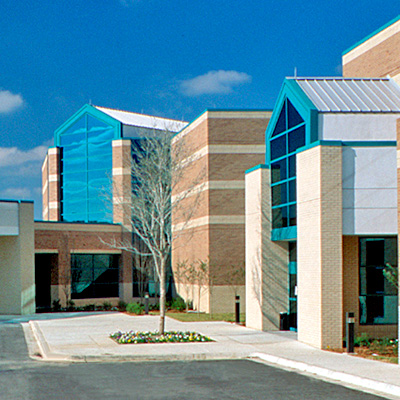
Baylor Scott & White McLane Children's at Baylor Scott & White Clinic - College Station University Drive
1700 University Dr E East Entrance 15, First Floor, Desk P, College Station, TX, 77840
- Monday: 8:00 am - 7:00 pm
- Tuesday: 8:00 am - 5:00 pm
- Wednesday: 8:00 am - 7:00 pm
- Thursday: 8:00 am - 5:00 pm
- Friday: 8:00 am - 5:00 pm

Baylor Scott & White Clinic - College Station Rock Prairie
800 Scott and White Dr , College Station, TX, 77845
- Monday: 7:30 am - 5:00 pm
- Tuesday: 7:30 am - 5:00 pm
- Wednesday: 7:30 am - 5:00 pm
- Thursday: 7:30 am - 5:00 pm
- Friday: 7:30 am - 5:00 pm
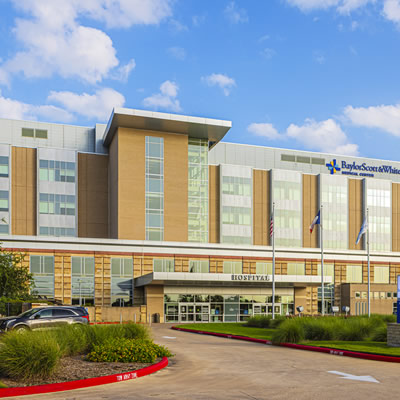
Baylor Scott & White Medical Center - College Station
700 Scott and White Dr , College Station, TX, 77845
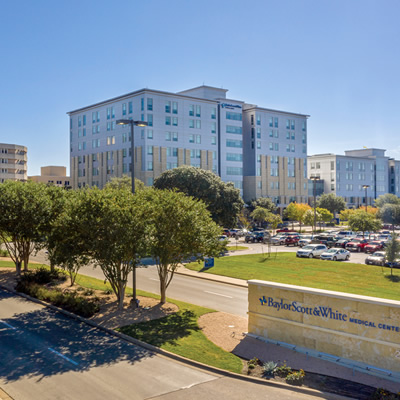
Baylor Scott & White Medical Center - Temple
2401 S 31st St , Temple, TX, 76508
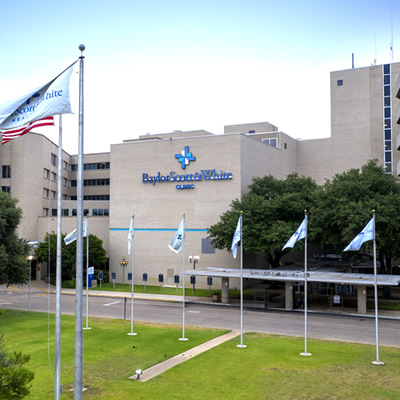
Baylor Scott & White Clinic - Temple
2401 S 31st St , Temple, TX, 76508
- Monday: 8:00 am - 5:00 pm
- Tuesday: 8:00 am - 5:00 pm
- Wednesday: 8:00 am - 5:00 pm
- Thursday: 8:00 am - 5:00 pm
- Friday: 8:00 am - 5:00 pm
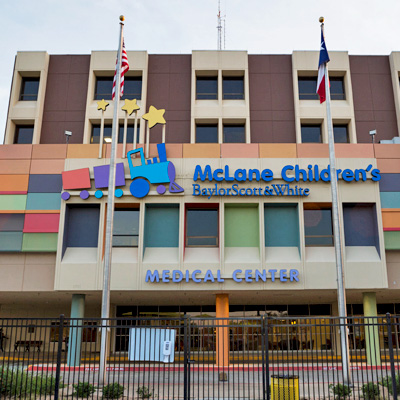
Baylor Scott & White McLane Children's Medical Center - Temple
1901 SW H K Dodgen Loop , Temple, TX, 76502
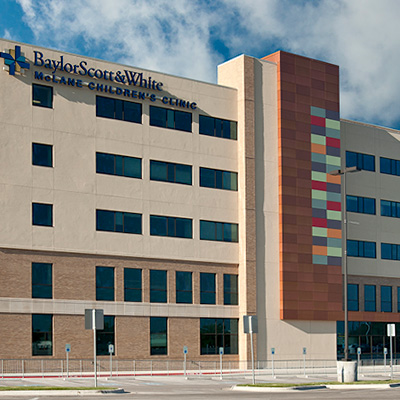
Baylor Scott & White McLane Children's Specialty Clinic - Temple
1901 SW H K Dodgen Loop , Temple, TX, 76502

Baylor Scott & White Medical Center - Brenham
700 Medical Pkwy , Brenham, TX, 77833
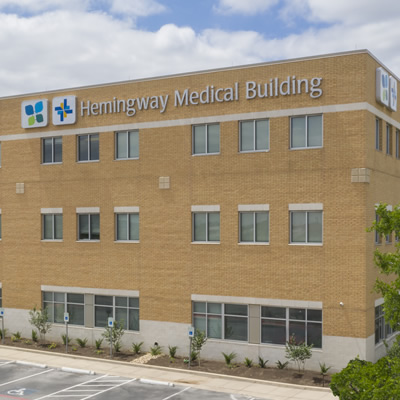
Baylor Scott & White Specialty Clinic - Killeen Hemingway
2405 S Clear Creek Rd , Killeen, TX, 76549
- Monday: 8:00 am - 5:00 pm
- Tuesday: 8:00 am - 5:00 pm
- Wednesday: 8:00 am - 5:00 pm
- Thursday: 8:00 am - 5:00 pm
- Friday: 8:00 am - 5:00 pm
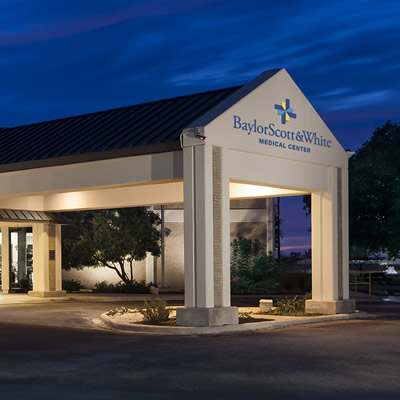
Baylor Scott & White Medical Center - Taylor
305 Mallard Ln , Taylor, TX, 76574
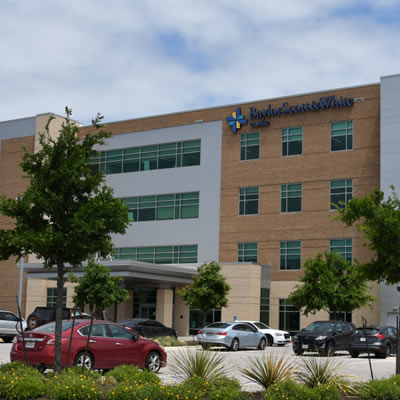
Baylor Scott & White Clinic - Round Rock 300 University
300A University Blvd , Round Rock, TX, 78665
- Monday: 8:00 am - 5:00 pm
- Tuesday: 8:00 am - 5:00 pm
- Wednesday: 8:00 am - 5:00 pm
- Thursday: 8:00 am - 5:00 pm
- Friday: 8:00 am - 5:00 pm
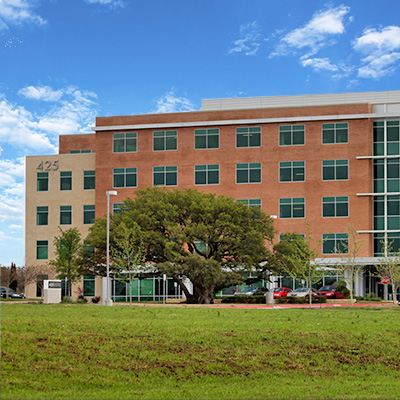
Baylor Scott & White McLane Children's Specialties at Baylor Scott & White Clinic - Round Rock 425 University
425 University Blvd , Round Rock, TX, 78665

Baylor Scott & White Medical Center - Round Rock
300 University Blvd , Round Rock, TX, 78665
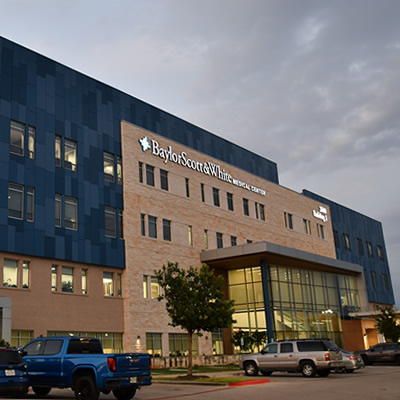
Baylor Scott & White Clinic - Pflugerville Medical Center (Building 1)
2600 E Pflugerville Pkwy Bldg 1, Ste 200, Pflugerville, TX, 78660
- Monday: 8:00 am - 5:00 pm
- Tuesday: 8:00 am - 5:00 pm
- Wednesday: 8:00 am - 5:00 pm
- Thursday: 8:00 am - 5:00 pm
- Friday: 8:00 am - 5:00 pm
- Monday: 7:30 am - 4:00 pm
- Tuesday: 7:30 am - 4:00 pm
- Wednesday: 7:30 am - 4:00 pm
- Thursday: 7:30 am - 4:00 pm
- Friday: 7:30 am - 4:00 pm
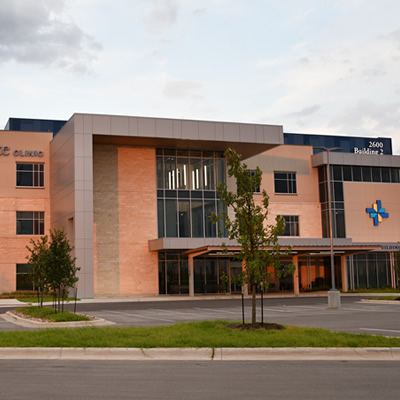
Baylor Scott & White Clinic - Pflugerville Medical Center Building 2
2600 E Pflugerville Pkwy Building 2, Pflugerville, TX, 78660
- Monday: 8:00 am - 5:00 pm
- Tuesday: 8:00 am - 5:00 pm
- Wednesday: 8:00 am - 5:00 pm
- Thursday: 8:00 am - 5:00 pm
- Friday: 8:00 am - 5:00 pm
- Monday: 8:00 am - 4:00 pm
- Tuesday: 8:00 am - 4:00 pm
- Wednesday: 8:00 am - 4:00 pm
- Thursday: 8:00 am - 4:00 pm
- Friday: 8:00 am - 4:00 pm
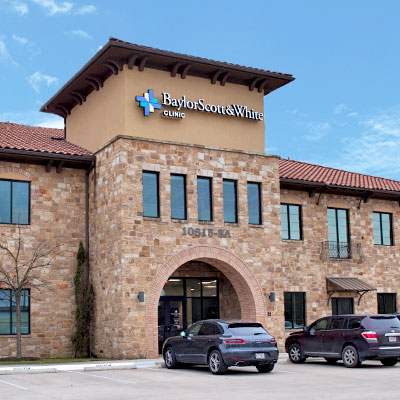
Baylor Scott & White Clinic - Austin River Place
10815 Ranch Rd 2222 , Austin, TX, 78730
- Monday: 8:00 am - 5:00 pm
- Tuesday: 8:00 am - 5:00 pm
- Wednesday: 8:00 am - 5:00 pm
- Thursday: 8:00 am - 5:00 pm
- Friday: 8:00 am - 5:00 pm
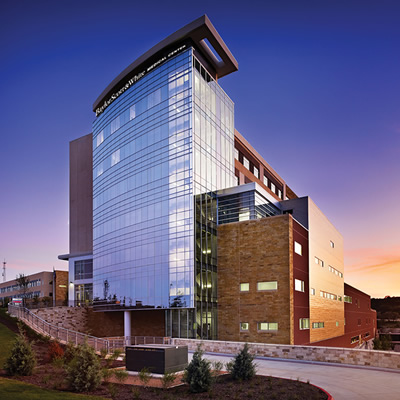
Baylor Scott & White Medical Center - Lakeway
100 Medical Pkwy , Lakeway, TX, 78738
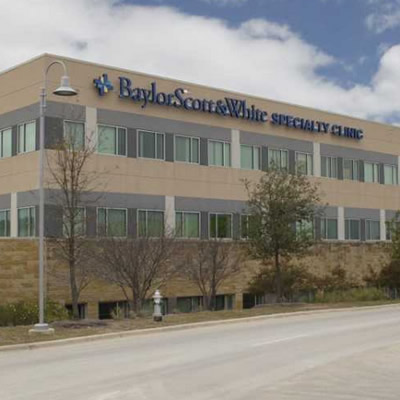
Baylor Scott & White Specialty Clinic - Lakeway
200 Medical Pkwy , Lakeway, TX, 78738
- Monday: 8:00 am - 5:00 pm
- Tuesday: 8:00 am - 5:00 pm
- Wednesday: 8:00 am - 5:00 pm
- Thursday: 8:00 am - 5:00 pm
- Friday: 8:00 am - 5:00 pm
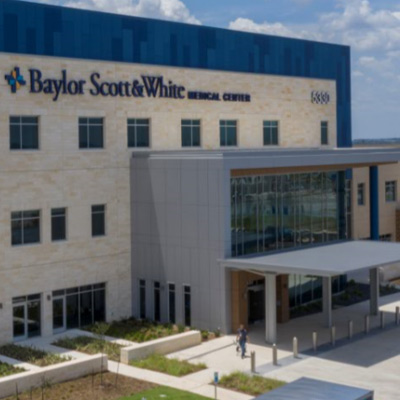
Baylor Scott & White Clinic - Buda Medical Center
5330 Overpass Rd Ste 100, Buda, TX, 78610
- Monday: 8:00 am - 5:00 pm
- Tuesday: 8:00 am - 5:00 pm
- Wednesday: 8:00 am - 5:00 pm
- Thursday: 8:00 am - 5:00 pm
- Friday: 8:00 am - 5:00 pm
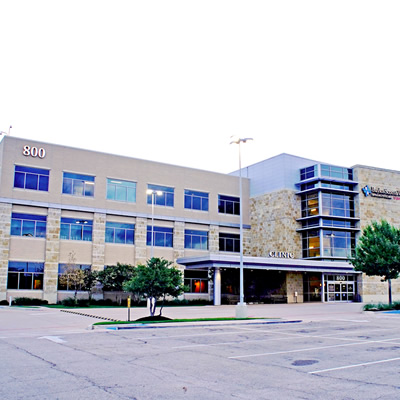
Baylor Scott & White Specialty Clinic - Marble Falls
800 W State Hwy 71 , Marble Falls, TX, 78654
- Monday: 8:00 am - 5:30 pm
- Tuesday: 8:00 am - 5:30 pm
- Wednesday: 8:00 am - 5:30 pm
- Thursday: 8:00 am - 5:30 pm
- Friday: 8:00 am - 5:30 pm
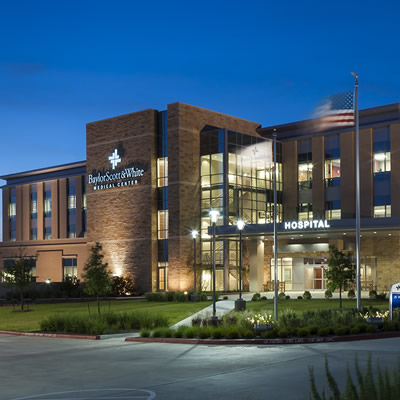
Baylor Scott & White Medical Center - Marble Falls
810 W State Hwy 71 , Marble Falls, TX, 78654

Baylor Scott & White Specialty Clinic - Horseshoe Bay
201 Bay West Blvd , Horseshoe Bay, TX, 78657
- Monday: 8:00 am - 5:00 pm
- Tuesday: 8:00 am - 5:00 pm
- Wednesday: 8:00 am - 5:00 pm
- Thursday: 8:00 am - 5:00 pm
- Friday: 8:00 am - 5:00 pm
Frequently asked questions
-
Is Huntington's disease dominant?
Yes, Huntington’s disease is a dominant genetic disorder. If a parent has the changed gene, each child has a 50% chance of inheriting it and developing the disease. It affects males and females equally because it is not linked to sex chromosomes.
-
Is there a cure for Huntington's disease?
No, there is currently no cure for Huntington’s disease. But treatments like medications and therapies can help manage symptoms and make daily life better. Researchers are actively studying new options, including gene therapy and stem cell therapy, in hopes of finding better ways to treat or eventually cure the disease.
-
Does Huntington's disease skip a generation?
No, Huntington’s disease does not skip generations. If a parent has the gene, each child has a 50% chance of inheriting it and developing the condition. Children without the gene won’t develop or pass on Huntington’s disease.
-
Can women get Huntington's disease?
Yes, women can get Huntington’s disease. It affects men and women equally. The disease is caused by a gene mutation passed from parent to child, with each child having a 50% chance of inheriting it and developing symptoms at varying ages and severity.
-
Can Huntington's disease be prevented?
No, Huntington’s disease cannot be prevented. It’s a genetic condition caused by an inherited gene change. While there’s no cure or way to stop it, genetic counseling helps families understand their risk. Treatments and support can improve quality of life but don’t prevent the disease.
